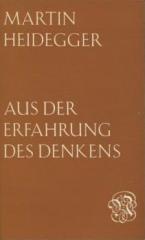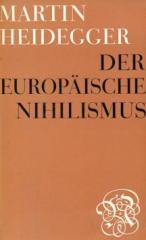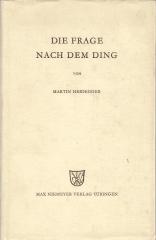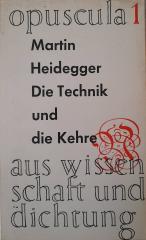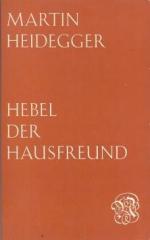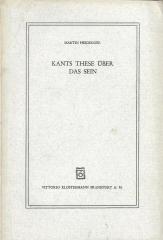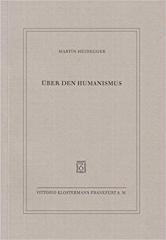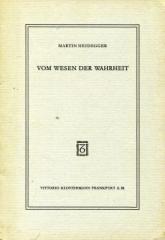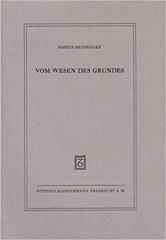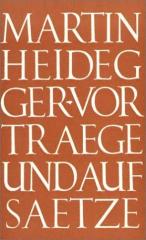Martin Heidegger
Martin Hajdeger (1889 – 1976) je bio nemački filozof i jedan od najuticajnijih mislilaca 20. veka, poznat po svom delu Biće i vreme (Sein und Zeit, 1927), koje je utemeljilo novu dimenziju ontologije – analizu bića kroz egzistencijalnu dimenziju čoveka (Dasein). Rođen je u Meskirhu i studirao je teologiju i filozofiju. Bio je profesor na Univerzitetu u Frajburgu, gde je katedru preuzeo od svog mentora Edmunda Huserla, osnivača fenomenologije.
U Bitku i vremenu Hajdeger uvodi egzistencijalnu analizu ljudske egzistencije, naglašavajući koncept „bića ka smrti“ i autentičnosti. Pitanje smisla postojanja postaje centralno u njegovoj filozofiji. Kasnije, takozvani „kasni Hajdeger“, gde se više bavi jezikom, poezijom i odnosom čoveka prema tehnologiji i suštini bića. Radovi kao što su Šta znači misliti?, Uvod u metafiziku i Pitanje tehnike odražavaju ovu fazu.
Hajdegerova filozofija je bila izuzetno uticajna, ali je njegovo članstvo u Nacističkoj partiji (NSDAP) 1933. izazvalo kontroverze i etičke debate koje su pratile njegov intelektualni doprinos.
Uprkos tome, on ostaje ključna figura u egzistencijalizmu, hermeneutici i savremenoj filozofiji. Njegove ideje su snažno uticale na mislioce kao što su Sartr, Derida i Gadamer.
Titles in our offer
Aus der Erfahrung des Denkens
„Iz iskustva mišljenja” je zbirka kratkih filozofskih beleški, aforizama i meditacija koje Hajdeger piše u kasnijoj fazi svog stvaralaštva. Delo nije sistematsko filozofsko izlaganje već niz misaonih fragmenata o prirodi mišljenja, jezika i bića.
Der europäische Nihilismus
"Der europäische Nihilismus" zbirka je Heideggerovih predavanja i bilješki iz 1930-ih i 1940-ih, u kojima analizira pojavu i značenje nihilizma u Europi.
Die Frage nach dem Ding
Pitanje o stvari zbirka predavanja koje je Heidegger održao 1935./36., bavi se temeljnim filozofskim pitanjem: Što je stvar?. Polazište mu je Kantova Kritika čistog uma, ali Heidegger ide dalje, želeći razjasniti samu prirodu stvari iz perspektive Bitka.
Die Technik und die Kehre
Die Technik und die Kehre ist eine 1954 veröffentlichte Essaysammlung, eines von Heideggers Schlüsselwerken zum Problem der Technik. Heidegger analysiert das Wesen der Technik und warnt, dass die moderne Technologie nicht nur eine Reihe von Mitteln ist, s
Hebel der Hausfreund
„Hebel – der Hausfreund“ basiert auf einem Vortrag Martin Heideggers aus dem Jahr 1957, in dem er über die Persönlichkeit und das Werk des deutschen Schriftstellers Johann Peter Hebel nachdenkt.
Kants these über das Sein
Kantova teza o Bitku, predavanje koje je Martin Heidegger održao 1930., usredotočeno je na analizu Kantove tvrdnje da je Bitak zapravo položenje (Setzung) – odnosno čin postavljanja ili afirmiranja kroz sud.
Über den Humanismus
Martin Heidegger u „Pismu o humanizmu“ (1947.) odgovara na pitanje Jeana Beaufreta o značenju humanizma, iznoseći kritički stav prema tradicionalnom humanizmu i nudeći novo razumijevanje čovjekova bitka.
Vom Wesen der Wahrheit
Vom Wesen des Grundes
Vorträge und Aufsätze
Zbirka objavljena 1954., okuplja neka od najvažnijih Heideggerovih kraćih tekstova iz njegovog srednjeg i kasnog razdoblja. U tim tekstovima Heidegger razvija ključne ideje o tehnici, umjetnosti, jeziku i odnosu čovjeka prema Bitku.
